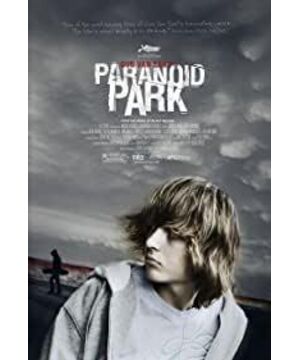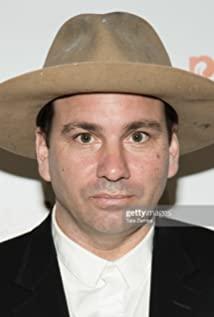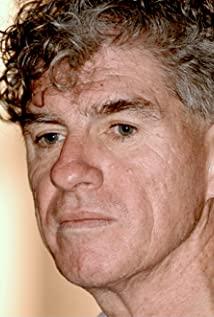In fact, starting from Gary, Gus Van Sant not only purifies and refines the theme of the film, but also makes a huge change in the form of expression of the film. The method has undergone a very personal transformation. Different from the normal and complementary forms in the previous dramatic conflict that focused too much on the narrative plot, he began to pay attention to a primary, slow-flowing and pure focus on the trajectory of life and the tentacles of youth. The expressive techniques, long-lens shooting techniques, fragmented narrative methods, and purely objective gaze perspective, these elements are organized, constructed, and kneaded into a whole, inherently inclusive, and at the same time, they are just right and tightly meshed with the theme of youth. external frame. Unlike the intense, fast, fleeting, and constant adrenaline rush of short shots in regular Hollywood movies. Gus Van Sant's long shot seems to be a pair of eyes staring at the existence of life. Whether it is the murder in Gary and the elephant, or the suicide in the last days, the flowing long shot is a true and complete record of life. To death, from color to gray, from rhythm to stillness, these records are not self-righteous wanting to discover the mystery of existence or wishful thinking to find insight, reasoning, and solve the inevitable death. key. He is just a complete and true record that has nothing to do with any external feelings, and what he carries is only the unique projection of the individual on the screen of life.
A story about the death of a railroad guard might be the only clear and complete one when it comes to the narrative thread of Psychedelic Park, but Gus Van Sant doesn't make this crime a vulgar suspense and thriller, in his Under careful cooking, what the film exudes and can be perceived by people is actually the ubiquitous emotional flow and psychological freehand. That handsome Alex, like Rimbaud's reincarnated soul, stirred up ripples of beauty and fragility. This is not even a narrow homosexual love, but a hopeless aesthetic and extreme like the young men who were bodybuilders in ancient Greece and loved by the wise. "When it comes to psychedelic parks, nobody's really ready," Jerry, Alex's only close buddy, told her when he took him to the skate park. Yeah, who gets ready when they're young? In the scenes that are both real and fantasy, and the background music with clear relaxation, the youthful body walks left and right on the skateboard. Like those skilled friends, Alex loves skateboarding. This time, Gus Van Sant found a legitimate sign of his youth — skateboarding. Glide, uncertain, difficult to stand still, always on the road. This Krouac-esque wandering spirit permeates the popularity of skateboarding culture. This subculture, which began in the fiery sixties, expresses itself in coolness and individuality, and it is a sort of end to that storm of youth that will go down in history. However, this does not mean that the belief in truth and freedom is no longer what people desire and has been transformed into historical memory displayed in museums, but has retreated from the once occupied grand narrative territory and is scattered in every detail of the consumer society. . It's not that people no longer love freedom and belief, but they just hate to practice their ideals in the fiery mass movement and the flying stones and devastated street battles. The only thing young people want to do is to feel good in their favorite groups and factions. The weightlessness of responsibility. I like skateboarding, the joy of being in the air, and the unfettered right to not think. It's the simplicity and purity that Alex enjoys.
Can the memory of youth be complete? The whole film is very similar to a teenager's youth memory, illogical, fragmented, full of content but meaningless. This form of memory exclusively for youth is different from the sophistication of adults. It is not the kind of engraving and forgetting that is skilled in calculation and purpose. Any moment can leave some imprints on the still young heart, but he is very Difficult to continue. The forward trajectory is always interrupted by whims and restlessness, and the scattered fragments are picked up and involved in reconstruction and reconstruction. If there is any director whose images can be faithful to this wonderful youth experience, it is undoubtedly Gus Van Sant. Of course, the youth told by the skate park is a memory, and the director's iconic shooting method is inextricably linked with the memory of the teenager. It seems to be simulating the thinking and existence of this group. The presentation of images is full of ups and downs and folds of life. The only climax is the display of death, but even so, the revealed chaos has become an excuse to reset the memory. Alex kept writing down the fragmented memory of the guard's death that night, only to burn it in the end. What a wonderful marriage between fragments of words and fragments of images. There is indeed a lot of lingering wonder and inspiration, and Gus Van Sant's record and Alex's writing are clearly full of connections. It is not an attempt to reproduce it completely, nor is it deliberately artificially sculpted, everything is just a peaceful record of those who have the right to start, be broken and end. Just like the burning text memory in the flames, the end of the dream of more than 100 minutes also caused the real paper to be torched. For Alex and Gus Van Sant, the guard's death memory is nothing but a moment in the eternal nature, and like the wonderful weightlessness of skateboarding, Alex jumping on the moving train is actually It is a young man's wish: I want to wander far away. The modern Thrall suddenly felt an inexplicable joy, the rumble of the machine screaming like the howl of Allen Ginsburg pushing through the obstacles and moving forward. But the old guard chased after the youth's ass and kept yelling, pulling, and blocking. Alex's uncompromising push ended his aging life and slapped the old and stubborn with youthful strength and vigor. There is no condemnation or abuse here, nor will it simply put the label of sin on the head of youth, nor will it write and direct a court trial drama to satisfy a false imagination and emotion. Gus Van Sant is always so calm and objective, everything is just the trajectory of youth itself, he walks on the road, singing loudly, full of joy, a dilapidated stone out of place blocked his way, he kicked the stone away, still singing loudly, went into the distance. Maybe even that old man and that death were just
View more about Paranoid Park reviews










